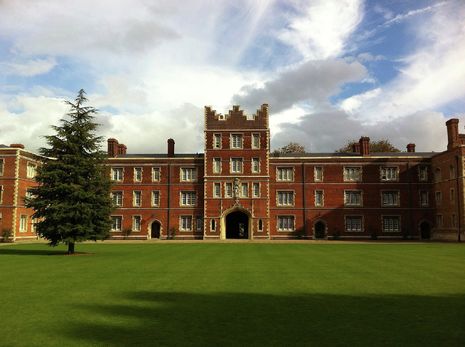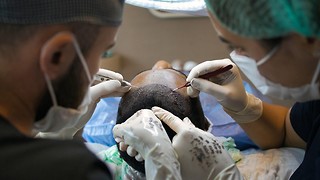The institutional perpetuation of victim blaming
An anonymous student at Jesus criticises their college’s coronavirus policies, which may see victims of harassment punished after reporting what has happened to them.

Content Note: This article contains detailed discussion of rape, sexual assault and trauma.
Recently, there was mass uproar in the student community caused by the release of a statement from Jesus College, claiming that students could face disciplinary action if they were in breach of COVID-19 regulations after reporting an incidence of harassment or abuse. An open letter calling for a retraction of the statement swiftly amassed over 1300 signatures, and an email from the Senior Tutor apologising for ‘distressed caused’ and a promise to seek ‘advice’ from ‘sexual abuse’ experts was proposed. Even with this, my questions about how this was allowed to occur, about why there was no advice sought out prior to the publishing of the procedure, about why the harmful implications of this message were seen as a postscript rather than a primary focus – all still remain.
“The institutional bias where punitive measures, rather than compassion, is directed towards those reporting an incident, causes further harm and begets additional trauma.”
Sadly, this incident is not an isolated example, and is part of a wider societal issue in which victim blaming is normalised within a pervasive system of rape culture. The suggestion that the survivor of abuse was at fault, and to go as far as to punish them for a supposed role in the situation, is a clear example of this. Rape culture is defined as the normalisation of incidents of rape and sexual assault due to the way they are perceived by society, ranging from inappropriate sexual jokes, to suggesting that survivors of assault in some way deserved their abuse due to their behaviour. Institutional bias where punitive measures, rather than compassion, is directed towards those reporting an incident, causes further harm and begets additional trauma. This is also defined as secondary victimisation, where the survivor is retraumatised through an institutional response that places them at fault and refuses to accept the severity of their case. It also creates a horrific hierarchy of who the ‘ideal victim’ is supposed to be, suggesting that those in breach of COVID-19 regulations could have avoided their victimhood status by choosing to avoid certain situations. A 2001 study by Professor Rachel Campbell found that negative interactions with medical and legal systems could result in increased instances of post-traumatic stress disorder.
“What kind of institution can we call ourselves when our first instinct is to punish the traumatised and look for ‘get-out clauses’ for the abuser?”
As a Jesusan myself who identifies as female, the message from the college caused a particularly visceral reaction of disgust. I felt physically repulsed at the thought of the college punishing a survivor of harassment, especially knowing that Jesus College Student Union had campaigned against this knowing the harm it would cause, and were still brushed aside. Already, within universities and wider society, there is a chronic underreporting of sexual harassment and assault perpetuated by the misogynist culture we live in, with research from the NUS Women’s Campaign showing that only one in seven report unwanted sexual behaviour to their institutions. Additionally, sexual harassment and assault claims often have protracted investigation periods, and there are already issues with the lack of action taken by the colleges and the University after these investigations are concluded, with Barrister Charlotte Proudman noting that some colleges even fail to investigate or turn women away ‘when they’ve gone along with either informal or formal complaints’. If such a scenario were to occur, it strikes me that it would be the claimant who would be punished first for contravening COVID-19 rules, and the perpetrator of the abuse would not be for several weeks or even months as the investigation took place. What kind of institution can we call ourselves when our first instinct is to punish the traumatised and look for ‘get-out clauses’ for the abuser?
This is not an isolated incident in Jesus College, as the University of Cambridge reported 165 cases of rape and sexual assault in 2016-2019. The student community within the college have also actively expressed their horror and anger regarding the stance from senior management. However, we cannot take the blame away from those who thought that this was an appropriate response. The promise of ‘proportionality’ by the Dean is not a guarantee for those who are making a claim, and it is hard to trust this after the JCSU has already been ignored when advocating that survivors should not face any disciplinary measures. This false notion of choice and disgusting attempt to shame those reporting through the myth of personal responsibility is something that should never have occurred in the first place. I hope that the statement is retracted, and that the college makes guarantees that claimants will not face punitive measures, not only for incidents of a sexual nature, but also for cases of other forms of violence, such as racial or homophobic abuse. Colleges are supposed to act as places of safety and provide welfare for vulnerable students, and this incident simply proves how much work needs to be done until this is true for all.
 Features / Meet the Cambridge students whose names live up to their degree9 September 2025
Features / Meet the Cambridge students whose names live up to their degree9 September 2025 News / Student group condemns Biomedical Campus for ‘endorsing pseudoscience’10 September 2025
News / Student group condemns Biomedical Campus for ‘endorsing pseudoscience’10 September 2025 News / Tompkins Table 2025: Trinity widens gap on Christ’s19 August 2025
News / Tompkins Table 2025: Trinity widens gap on Christ’s19 August 2025 News / New left-wing student society claims Corbyn support11 September 2025
News / New left-wing student society claims Corbyn support11 September 2025 Science / Who gets to stay cool in Cambridge?7 September 2025
Science / Who gets to stay cool in Cambridge?7 September 2025









